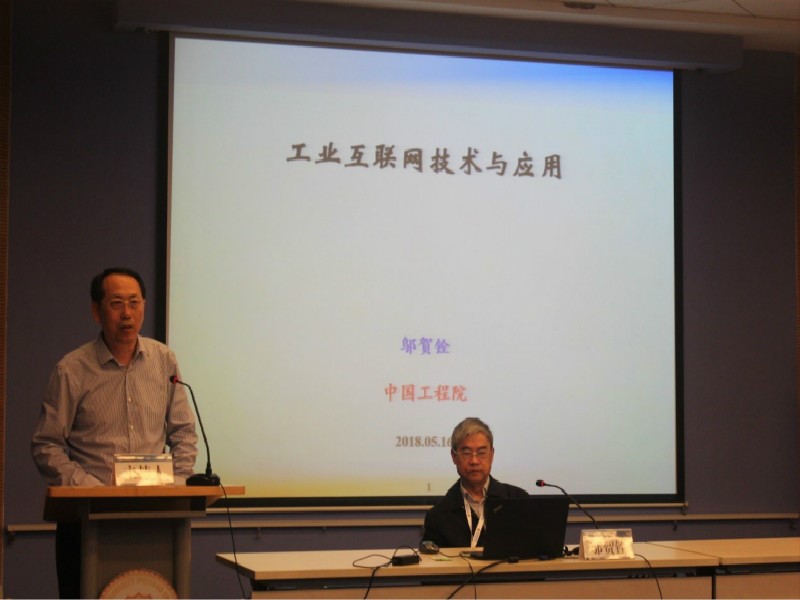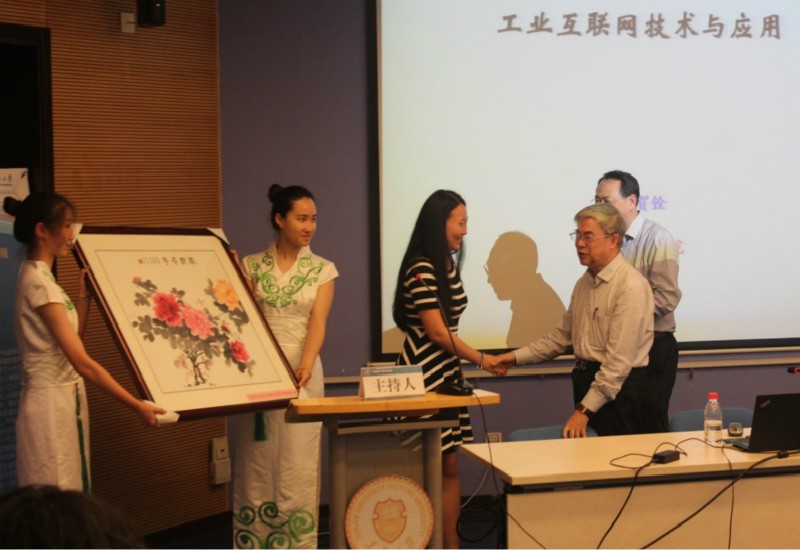Recently, Wu Hequan, an Academician of the Chinese Academy of Engineering, delivered a remarkable report titled “Industrial Internet Technology and Applications” in the Peiyang Lecture hall at the invitation of the School of Electrical and Information Engineering. Wang Chengshan, dean of the school, Zhang Xiujuan, deputy secretary of the Communist Party committee, Mr. Yang Enze, Mr. Cao Dazhong, and Wang Qing, deputy director of the communications department, along with over 100 faculty and students, attended the lecture together. The lecture was hosted by Wang Chengshan.

Academician Wu is communicating with teachers and students
Wu Hequan is an expert in optical fiber transmission networks as well as broadband information networks. He has concentrated on research and project management of optical fiber transmission systems and broadband networks. In recent years, he has been responsible for the management of R&D projects such as Next Generation Internet (NGI), 3G and its Evolutionary Technology (LTE). He is currently deputy director of the State Information Expert Consultation Committee, director of the Communication Science and Technology Committee of the Ministry of Industry and Information Technology, director of the National Standardization Experts Committee, member of the National Manufacturing Strategy Advisory Committee, director of the National Internet Plus Action Experts Advisory Committee, and a senior IEEE member.

Dean Wang presides over the report
Wu introduced the industrial Internet and its applications in three aspects: the process of industrial informatization, industrial Internet applications, and the status and prospects of China's industrial Internet. First, Wu introduced the progressive nature of the industrial Internet, industrial Internet communication technology, the digitization of the entire process of industrial manufacturing, and the model of the industrial Internet information physics system, which enabled listeners to have a clear understanding of the industrial Internet. Also, Wu introduced main achievements China had made, taking Narrow-Band Internet of Things technology, communication link layer technology and blockchain technology as examples. Focusing on the status of China's industrial Internet, Wu repeatedly emphasized the importance of appropriate use of technology, then he proposed the concept of cyber security and data security challenges. In the end, Wu pointed out that the industrial Internet development of China has a long way to go, and that management innovation and technological innovation of enterprises are always evolving.

The student presents a Northern China Fanghua map to Academician Wu
After the report, Wu further discussed with students about the problems of 5G technology development. He thought that core science technology is still a bottleneck for China, so he encouraged students to work harder to overcome difficulties and make more innovations. Wang Yinze, a 2017 doctoral student from school of electrical engineer and automation, presented a "Northern China Fanghua" map to him on behalf of the school in appreciation of his speech at the Peiyang lecture hall, and anticipating future visits to Tianjin University.
Wu has a close relationship with Tianjin University and has presented many lectures here. Since 2005, he has made nine academic reports in Tianjin University, benefiting many teachers and students.
By: School of Electrical and Information Engineering
Editors: Qin Mian and Keith Harrington






